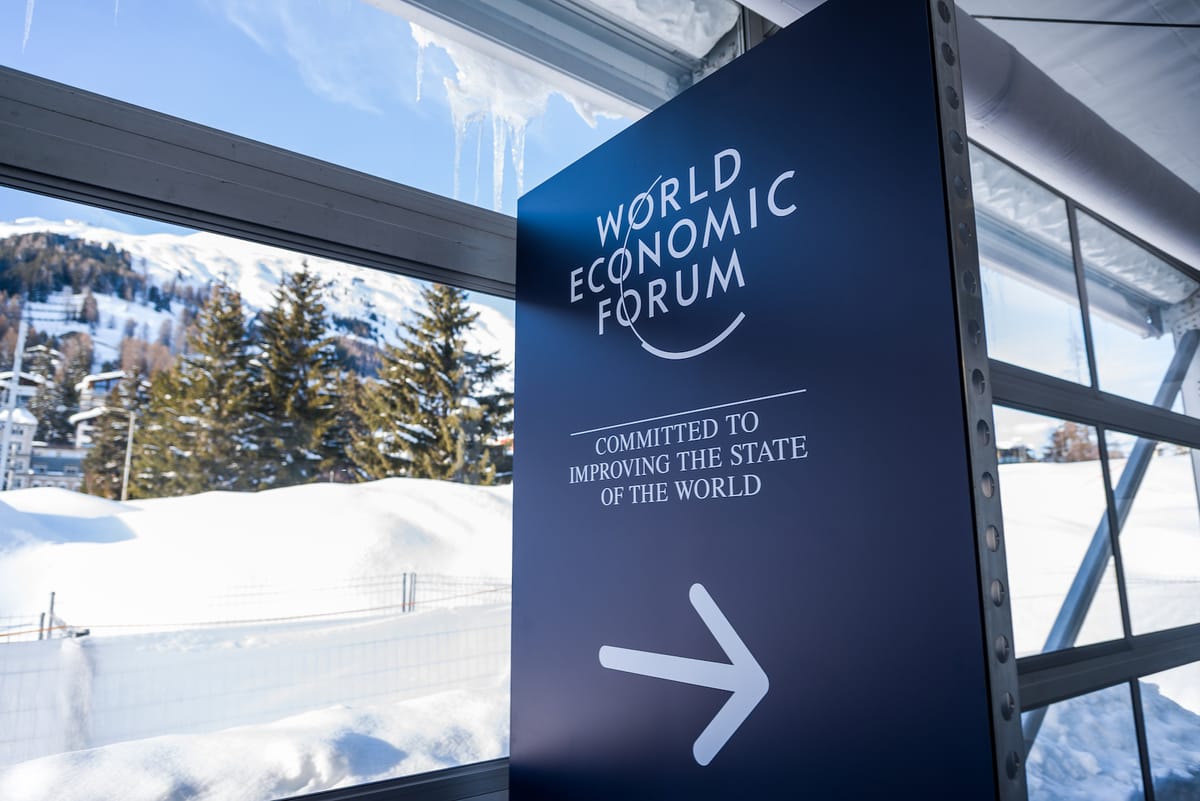

President Trump's Return to the Global Stage
On January 23, 2025, President Donald Trump made a highly anticipated virtual address to the World Economic Forum in Davos, Switzerland. This event marked a significant return to the global stage for President Trump, who has been a prominent figure in international economic discussions during his previous term in office. The address was part of a broader engagement with global business leaders, policymakers, and other influential figures gathered at the forum.
The World Economic Forum, known for its annual meetings that bring together the world's most powerful and influential people, provided an ideal platform for President Trump to share his economic vision. His participation was particularly noteworthy given his previous attendance at the summit during his first term as President. This time, however, his address was delivered virtually, reflecting the evolving nature of global communication and collaboration.
President Trump's speech was expected to cover a range of topics, including his economic policies, trade initiatives, and the future of global economic cooperation. Given his track record of advocating for strong economic growth and job creation, his address was eagerly anticipated by both supporters and critics alike.
Economic Policies and Tax Reforms
A key component of President Trump's economic vision has always been his tax policies. During his campaign and first term, he introduced significant tax reforms aimed at boosting economic growth and reducing the tax burden on both individuals and businesses. In his address to the Davos Forum, he was expected to outline his plans for extending and possibly expanding these tax reforms.
The extension of the Tax Cuts & Jobs Act, which was set to expire at the end of 2025, was a priority for President Trump. This legislation, passed in 2017, had lower tax rates and was seen as a major stimulus to the economy. By extending it, President Trump aimed to prevent a significant tax increase for many taxpayers, particularly those in higher income brackets who would benefit the most from these provisions.
In addition to extending existing tax policies, President Trump has proposed new tax breaks aimed at various sectors of the economy. These include ending taxation on Social Security benefits, tipped income, and overtime pay, as well as introducing new deductions such as an itemized tax deduction for interest on auto loans. These proposals, while potentially beneficial for many Americans, also raise questions about their impact on the federal deficit and interest rates.
International Trade and Tariffs
President Trump has been a staunch advocate for fair and reciprocal international trade. His address at Davos was likely to touch on his ongoing efforts to reshape global trade policies, including the imposition of tariffs on foreign goods. These tariffs are intended to protect American industries and ensure that trade agreements are more balanced and favorable to the United States.
The revenue generated from these tariffs could help offset some of the costs associated with the proposed tax cuts. However, the impact of tariffs on global trade and economic stability is a complex issue, with some economists warning about potential trade wars and increased costs for consumers.
Cutting Government Spending
Alongside his tax and trade policies, President Trump has also emphasized the need to reduce government spending. His proposals include cutting funding for certain projects and reclaiming unspent money from initiatives like the Inflation Reduction Act. These measures are part of a broader effort to streamline government spending and reduce the federal deficit, although many economists question whether these cuts will be sufficient to offset the costs of the proposed tax breaks.
Global Economic Leadership
President Trump's address to the Davos Forum was not just about outlining his economic policies but also about reaffirming the United States' role as a global economic leader. His presence at the forum underscored his commitment to engaging with international partners and shaping the global economic agenda.
The forum, which included other prominent speakers such as Javier Milei, the President of Argentina, and Muhammad Yunus, the Nobel Peace Prize laureate, provided a platform for President Trump to engage in a dialogue with other leaders on key economic issues. This engagement is crucial in an increasingly interconnected world where economic policies have far-reaching global implications.
Public Reception and Economic Impact
The public reception of President Trump's address was varied, reflecting the diverse opinions on his economic policies. Supporters saw his speech as a strong reaffirmation of his commitment to economic growth and job creation, while critics raised concerns about the potential impacts on the federal deficit and global trade stability.
The economic impact of President Trump's policies will be closely watched in the coming months. Economists will be analyzing how his tax reforms, trade policies, and spending cuts affect economic growth, employment rates, and overall economic stability. The success of these policies will be a key factor in shaping the future of the U.S. economy and its position in the global economic landscape.
A New Chapter in Global Economic Leadership
President Trump's virtual address to the Davos Forum marked a new chapter in his economic leadership, both domestically and internationally. His commitment to tax reforms, fair trade, and reduced government spending aligns with his broader vision of a robust and competitive U.S. economy.
As the global economy continues to evolve, President Trump's policies will play a significant role in shaping the future of economic cooperation and competition. His address at Davos underscored his determination to lead on these issues and ensure that the United States remains a dominant force in the global economy.
Dues are $12 per year. Member benefits:
✅ Ad-Free Website Viewing
✅ Advocacy for Republican Seniors
✅ 120+ Senior Discounts
✅ Member Only Newsletters